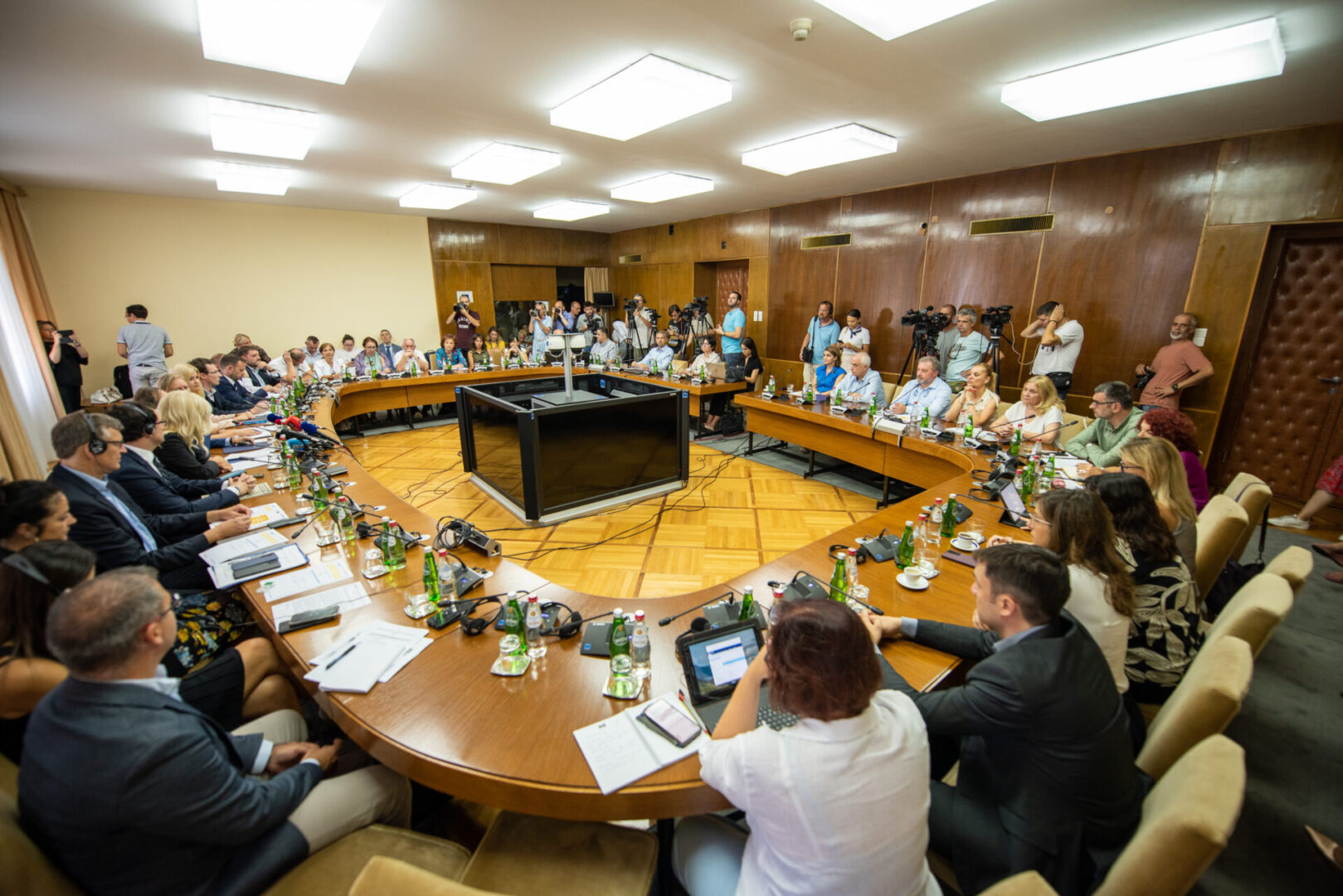“Corruption is an insidious force and the work to eradicate it must be constant and diligent and successful prevention and suppression of corruption should be at the heart of reform processes in Serbia, first and foremost for the benefit of its citizens. Tackling corruption and abuse of the system is vital to restoring citizens’ trust in institutions and ensure democracy, good governance and fair competition in every society”. These statements were highlighted at the Roundtable, organized as part of the public consultancy on the Draft of the National Anticorruption Strategy for the period 2023-2028.
With the support of the Project „Strengthening Rule of Law in Serbia (EU FOR THE FIGHT AGAINST CORRUPTION AND FOR THE FUNDAMENTAL RIGHTS)“, co-funded by EU and BMZ, and implemented by GIZ, the draft of the National Anti-Corruption Strategy for the period 2023-2028 and accompanying Action Plan for 2023 and 2024 has been presented at a roundtable, as a part of the public consultancy, by Minister of Justice Mrs. Maja Popović, together with the Head of EU Delegation to Serbia Mr. Emanuele Giaufret and Mr. Dennis Kaiser, Head of Economic Department of the Embassy of Germany to Serbia.

Minister Popović highlighted the importance of the document and pointed out that the risk areas covered by the aspect of the fight against corruption relate to privatization, construction and spatial planning, public procurement, customs system, tax system, financing of political activities, local self-government, public sector management, public and state-owned enterprises, police, healthcare, and education.
“The fight against corruption is a high priority for the European Union and member countries have relatively good results on the international level, as well as indicators that measure the fight against corruption. The process of public consultancy is important, and to be effective, the Strategy needs to be developed on a solid basis of consensus and broad consultation, which is why the EU is establishing an Anti-Corruption Network tasked with developing best practices and practical guidelines in various areas that can serve as a solid basis for anti-corruption actions and follow-up the success of these actions”, Ambassador Giaufret said.

Mr. Kaiser expressed his firm belief that the effective implementation of the proposed measures and activities will yield important results when it comes to strengthening the competences of the Agency for Prevention of Corruption, establishing a measurable track record of investigation, prosecution, and convictions for organized crime and corruption cases in wide range of policy areas, including public procurement, financial services and money laundering; freezing, confiscation and recovery of assets; effective protection of whistleblowers, etc.








